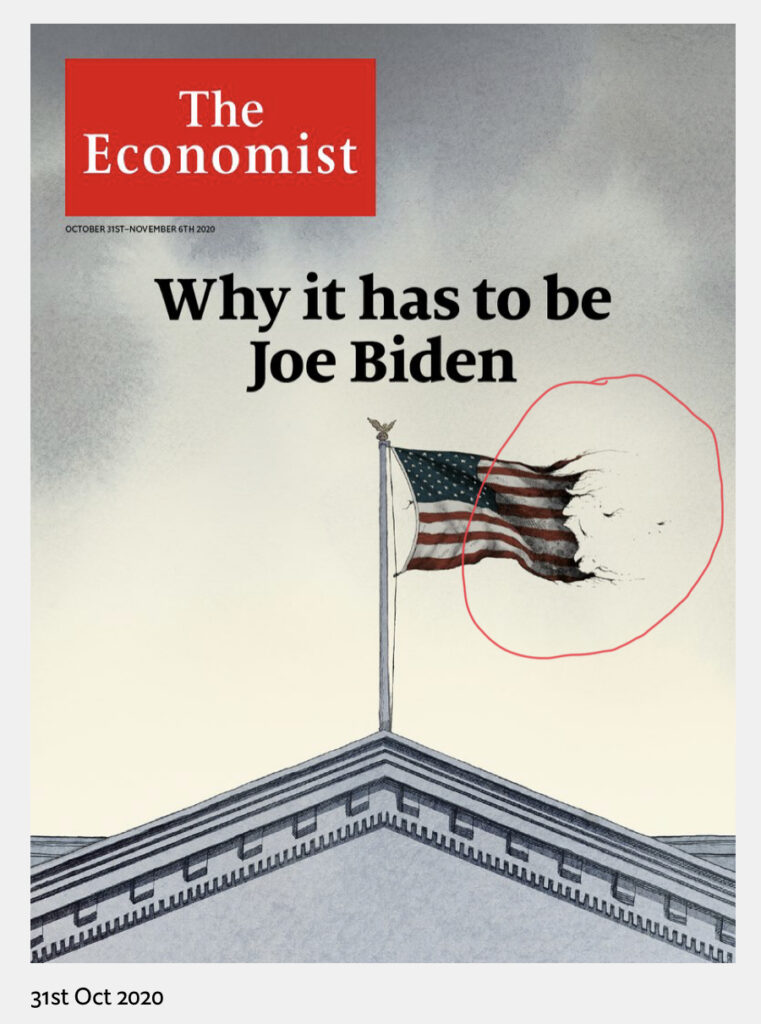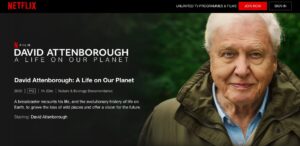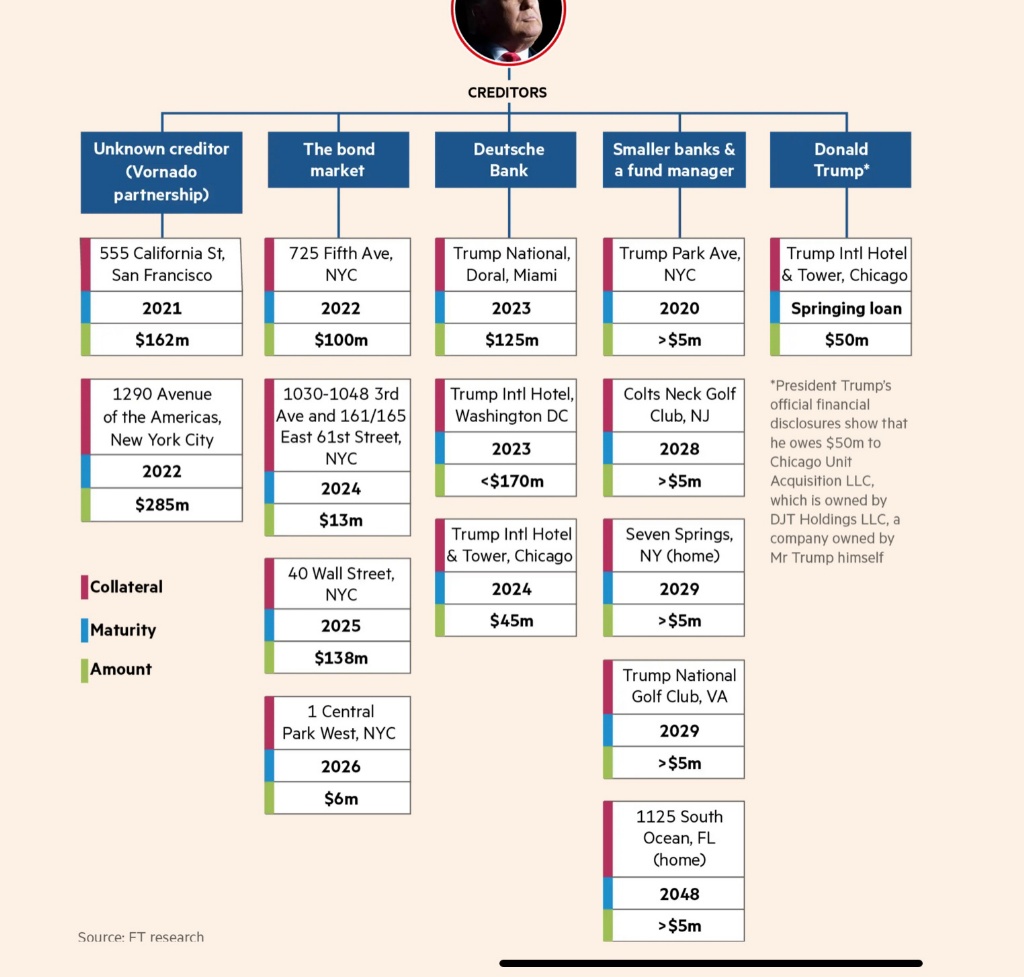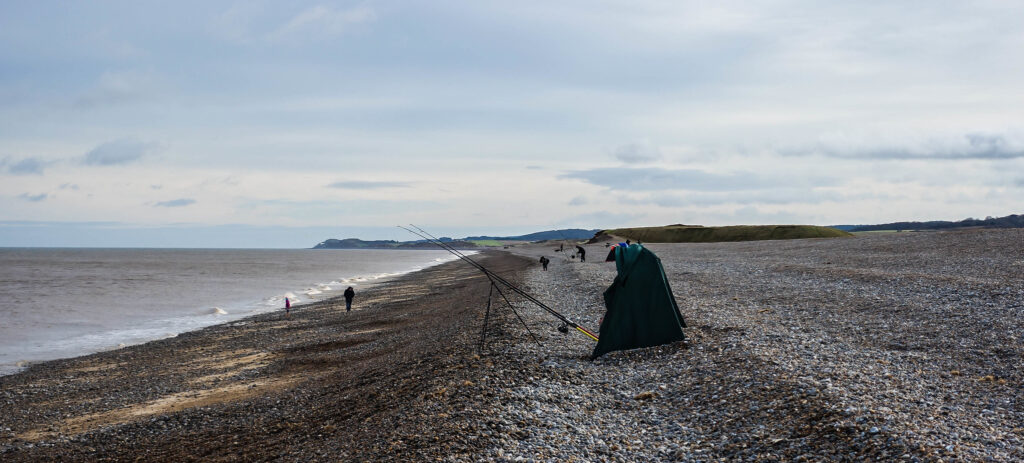This week’s Economist cover (with my annotation). Neat graphic.
Quote of the Day
Once, censorship worked by blocking crucial pieces of information. In this era of information overload, censorship works by drowning us in too much undifferentiated information, crippling our ability to focus. These dumps, combined with the news media’s obsession with campaign trivia and gossip, have resulted in whistle-drowning, rather than whistle-blowing: In a sea of so many whistles blowing so loud, we cannot hear a single one.
Musical alternative to the morning’s radio news
Liam O’Flynn (sadly RIP) with Arty McGlynn, Christy Moore and Rod McVey at The Point, Dublin in 1997
Facebook has good reasons for blocking research into political ad targeting
This morning’s Observer column. Snippet:
The researchers had built a plug-in extension for the Google Chrome browser that, they explained, “copies the ads you see on Facebook, so anyone, on any part of the political spectrum, can see them in our public database. If you want, you can enter basic demographic information about yourself in the tool to help improve our understanding of why advertisers targeted you. However, we’ll never ask for information that could identify you. It doesn’t collect your personal information. We take your privacy very seriously.”
So what was the problem? Basically this: the extension has access to not simply public posts on Facebook but also to whatever content the user accessed while logged in. This would include their personal data, of course, but, as is likely in the case on many Facebook pages, also some data from the user’s friends.
Long read of the Day
Om Malik: Why Great Design is Timeless
A lot of commentary has followed the launch of the iPhone 12, some of it praising Apple for going back to the old design and some complaining about Apple’s inability to do something different from a design perspective. Both sides miss the point: Enduring design doesn’t need constant reinterpretation. It needs tweaking, polishing, and subtle improvement. I think of the iPhone and its design language very similar to Porsche’s design language. Or, for that matter of a classic Leica camera…”.
A win for Joe Biden would only scratch the surface of America’s afflictions
Sobering piece by John Mulholland, the Guardian‘s US Editor.
If the president loses, there will be much talk of a new normality and the need for a democratic reset. Hopes will be voiced for a return to constitutional norms. There will be calls for a return of civility in public discourse and a healing of the partisan divide that scars America. All of that is as it should be. But it ought to come with a recognition that America was broken long before it elected Trump and his departure would be no guarantee that the country will be mended. Many of the systemic issues that afflict the US predate Trump.
His ugly and dysfunctional presidency has distracted from many of the fundamentals that have beset America for decades, even centuries. But they remain stubbornly in place. If he does lose, America will no longer have Trump to blame. Two two-term Democratic presidents over the past 30 years have not significantly affected the structural issues that corrode US democracy and society, and race is always at their heart. The past few months have drawn further attention to the systemic racism and brutality that characterise much policing. But racism in the States is not confined to the police. In fact, it is not confined at all.
When Barack Obama was elected in 2008, there was talk about a post-racial America. But in 2016, at the end of Obama’s eight-year term, the non-partisan thinktank the Pew Research Center estimated that the median wealth of white households in the US was $171,000 (£132,000). This was 10 times the median wealth of black households ($17,100). This was a larger gap than in 2007, the year before Obama was elected.
Trump can be blamed for exacerbating racial tensions and giving succour to white supremacists but the racial wealth gap runs deeper than his term of office. As the non-aligned Brookings Institution said this year: “Gaps in wealth between black and white households reveal the effects of accumulated inequality and discrimination, as well as differences in power and opportunity that can be traced back to this nation’s inception.”
There’s also the matter of what happened to Native Americans.
We’re all prisoners of our histories. Back to my General Theory of Incompetent Systems.
Keys to the White House…
… is the name of a forecasting system, developed by political scientist Allan Lichtman for predicting the winner of American presidential elections, based upon the theory of pragmatic voting. (America’s electorate, according to this theory, chooses a president, not according to events of the campaign, but according to how well the party in control of the White House has governed the country.) It’s claimed that the system has correctly forecast the winner of all eight presidential elections from 1984 to 2016, usually months or even years prior to Election Day.
At the moment it’s predicting a Biden victory of 52.2% over 47.8% in the popular vote and 336 to 202 in the Electoral College.
Other, possibly interesting, links
- 25 Feel-Good Films You’ll Want to Watch Again—and Again. Might be useful for lockdown. Link
- Ireland Mourns for Missing Dolphin Fungie – The New York Times. Link Might seem daft, but accurate. Dingle is one of my favourite places in all the world, and this Dolphin was one of its many delights. I still remember the joy on my daughter’s face one day in 1995 when, aged 4, she was able to reach out of the boat and stroke his dorsal fin.
- Taiwan marks 200 days without domestic Covid-19 infection. It can be done. You just need a government that knows what it’s doing. Link
This blog is also available as a daily email. If you think this might suit you better, why not subscribe? One email a day, delivered to your inbox at 7am UK time. It’s free, and there’s a one-click unsubscribe if your decide that your inbox is full enough already!















